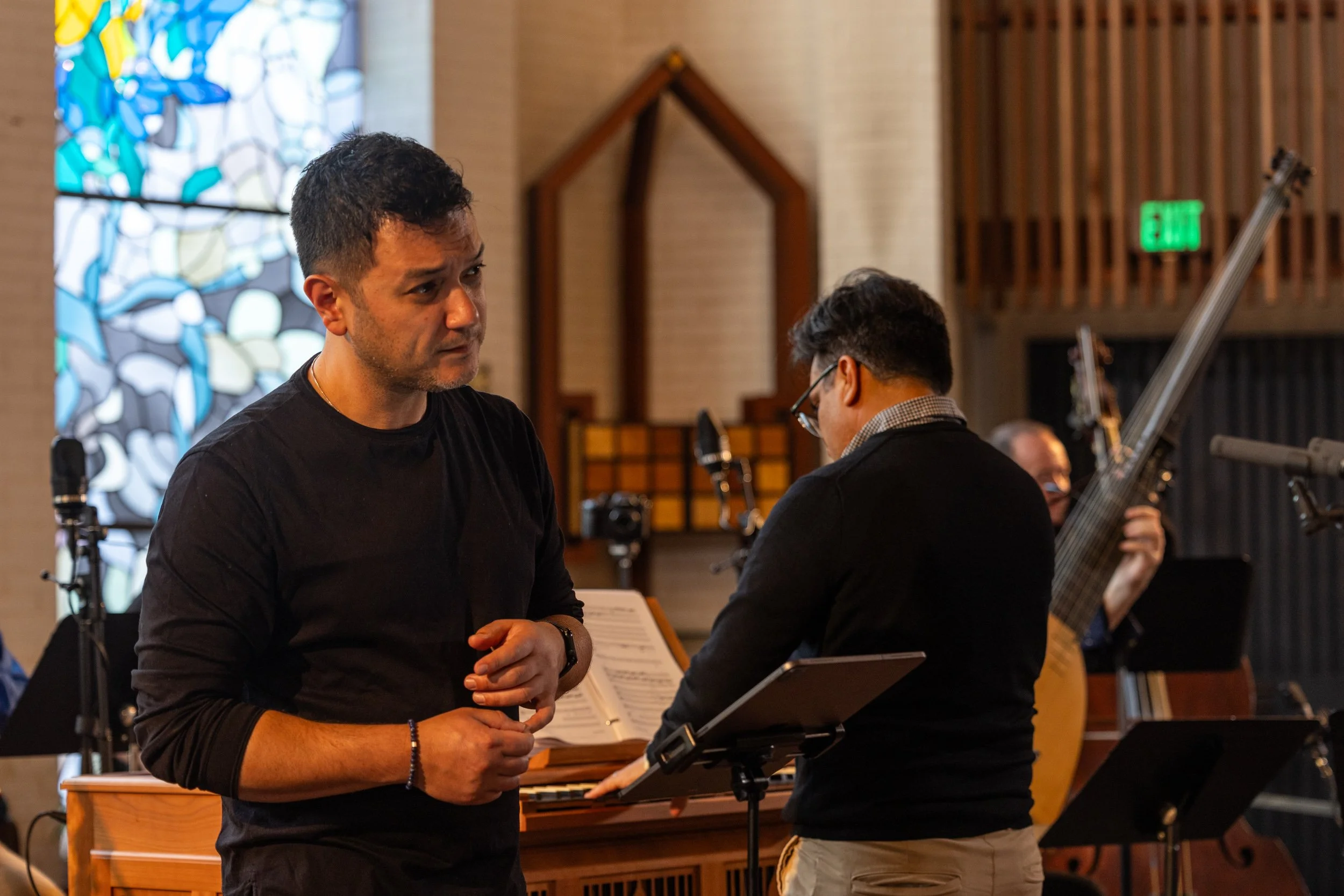ABOUT
IS THE MUSIC OF BACH FOR EVERYONE?
BACH 52 is a web series that explores the question: “Is the music of Bach for everyone?”
Comprised of 52 episodes, each episode of BACH 52 features a film and recording of one tenor aria (or duet) from Johann Sebastian Bach’s church cantatas that is paired with interviews with scholars, musicians, and audience-members that probes this question.
The choice of 52 arias will allow for a year-long exploration of Bach’s music and examination of the relevance of his music to today’s increasingly secular and diverse society.
The music of Bach has formed an important cornerstone of my repertoire. Over the years, I’ve had many opportunities to perform this repertoire all over the world, working as a soloist with Bach-experts such as Helmuth Rilling, Masaaki Suzuki, Jane Glover, and John Nelson, with many ensembles including the Oregon Bach Festival, Weimar Bach-Akademie, Bach Collegium Japan, Orchestre de Chambre de Paris, Strasbourg Philharmonic, Bach Collegium Stuttgart, New York Philharmonic, Cleveland Orchestra, and the National Symphony Orchestra. I've sung Bach's music in a wide variety of venues, ranging from the very churches in Germany where he worked as choirmaster and organist, to secular stages such as Carnegie Hall, Lincoln Center, the Kennedy Center, and Tokyo City Concert Hall. All these experiences have led to a desire to have an immersive recording experience with Bach’s music. This desire combined with the reckonings posed by the present moment are the inspirations behind the BACH 52 project.
In the current cultural climate in which so much about classical music is being questioned for its validity, I find that I am often asking myself: is classical music really for everybody? In a basic sense, I have always believed this to be true. On the other hand, as the classical music community examines the racism, misogyny, and homophobia baked into much of this music and its institutions, it’s hard not to recognize the ways that the traditions can exclude. Yet, the truth is, as a gay man of color who has spent much of his life on the outside looking in, classical music is the thing that kept me alive through my fraught adolescence and through which I have found community. As usual, no thing is just one thing, and art can hold many truths at once.
Join me as we examine the question of Bach’s universality, exploring varying opinions on this premise, inquiring if and how it can be possible to ensure inclusivity around Bach’s music, as well as highlighting the ways in which Bach’s music remains relevant to today’s cultural and societal landscape, or fails to do so.
ABOUT THE HOST
Nicholas Phan is an acclaimed American lyric tenor, celebrated for his expressive artistry and versatility across a repertoire spanning nearly 500 years. Described by the Boston Globe as “one of the world’s most remarkable singers,” he has earned international recognition for his captivating stage presence, keen intelligence, and natural musicianship.
Phan won the 2025 Grammy Award for Best Opera Recording for his recording of Kaija Saariaho’s Adriana Mater with Esa-Pekka Salonen and the San Francisco Symphony. His album, A Change Is Gonna Come, was nominated for the 2025 Grammy Award for Best Classical Solo Vocal Album. His previous albums, Stranger: Works for Tenor by Nico Muhly,Clairières, and Gods and Monsters, were nominated for the same award in 2023, 2020 and 2017. He is the first singer of Asian descent to be nominated in the history of the Best Classical Solo Vocal Album category, which has been awarded by the Recording Academy since 1959.
Sought after as a curator and programmer, in addition to his work as artistic director of CAIC, Phan is the host and creator of BACH 52, a web series examining the music of Johann Sebastian Bach. He has created programs for broadcast on WFMT and WQXR and has also served as guest curator for projects with the Philadelphia Chamber Music Society, Bravo! Vail Music Festival, San Francisco Opera Center, and San Francisco Performances, where he served as the vocal artist-in-residence from 2014-2018. Phan’s programs often examine themes of identity, highlight unfairly underrepresented voices from history, and strive to underline the relevance of music from all periods to the currents of the present day.

